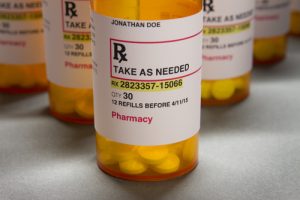
Language should not be included in the fiscal year 2022 appropriations bill that would prohibit the U.S. Food and Drug Administration (FDA) from allowing pharmaceutical prescribing information to be delivered primarily in digital form, according to U.S. Rep. Adam Kinzinger (R-IL) and a bipartisan group of 19 congressmen.
A 2014 regulation proposed by the FDA would have updated current practice by removing the requirement that prescribing information be delivered primarily by paper, but the FDA has been blocked from finalizing this rule by annual appropriations language that prohibits the expenditure of funds for any such action, wrote Rep. Kinzinger and his colleagues in an April 29 letter sent to appropriators in the U.S. House of Representatives. The letter noted that the language was again included in the FY 2021 Agriculture, Rural Development, Food and Drug Administration, and Related Agencies appropriations bill.
Rep. Kinzinger and the lawmakers, who included U.S. Reps. Billy Long (R-MO), Bill Johnson (R-OH), John Curtis (R-UT), Fred Upton (R-MI), and Mikie Sherrill (D-NJ), urged against the inclusion of such language in the FY 2022 appropriations bill.
Specifically, prescribing information (PI) is the paper included in the bulk shipment boxes of pharmaceutical products that pharmacists or prescribers receive directly from a distributor, according to their letter, and updated PI will not impact the information patients receive with their prescriptions because it’s intended to be used by medical professionals.
“Prescribers are already comfortable with receiving information via digital means,” wrote Rep. Kinzinger and his colleagues, who added that most prescriptions today are sent and filed electronically, including for Medicare.
And with as many as three billion prescription inserts produced annually — that the FDA says range from a few pages to as many as 45 pages — the elimination of paper could lead to smaller shipping packages, less greenhouse gas emissions, reduced waste, and saving approximately 4.8 million trees annually, wrote the lawmakers.
At the same time, “commonsense modernization of the PI requirements will not only avoid a negative impact to patients but may actually improve patient care by allowing labeling updates to be shared more readily than updates made in paper form would permit,” the congressmen wrote.



